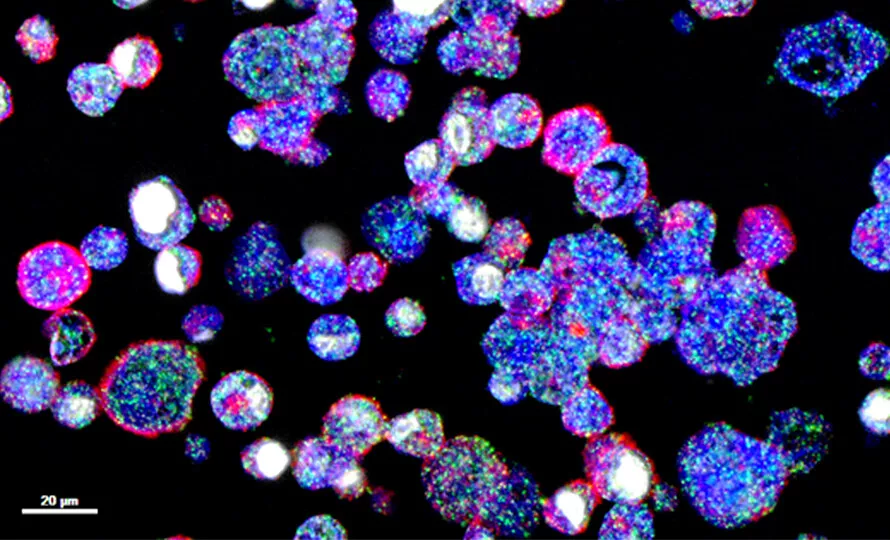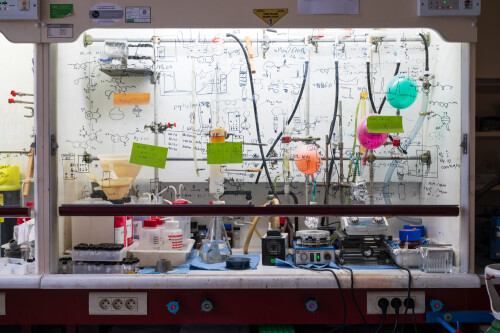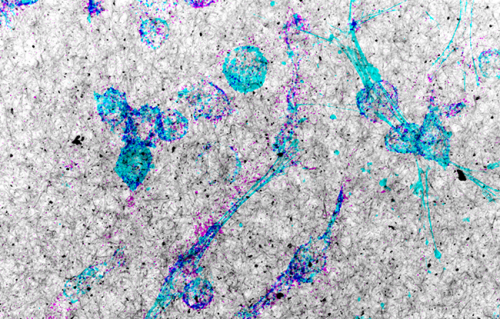In breast cancers of epithelial origin, a process of cellular plasticity known as epithelial-mesenchymal plasticity has been observed in a particularly aggressive subtype characterized by a mesenchymal gene expression signature and specific stem cell properties.
The role of the RAS-MAPK cellular pathway
In this study, led by Prof. Alain Puisieux of the Chemical Biology team (CNRS UMR3666 / Inserm U1143) at Institut Curie and Dr. Anne-Pierre Morel, head of the EMT and Cancer Cell Plasticity team at Centre Léon Bérard, the researchers observed that these aggressive tumors frequently activate the RAS/MAPK mitogenic signaling pathway. They then demonstrated that activation of the RAS oncogene triggered two types of response within the epithelial cell population: some cells entered senescence, a process characterized by a definitive cell cycle arrest, while others engaged in a process of epithelial-mesenchymal plasticity necessary for malignant transformation.
A high-risk cellular response
They further discovered that epithelial-mesenchymal plasticity in transforming cells was induced by the secretion of pro-inflammatory cytokines by nearby senescent cells. This observation highlights an unexpected role for senescence. Indeed, entry into senescence is generally interpreted in a deterministic way: the cell subjected to oncogenic stress sacrifices itself to ensure the survival of the organism. The results of this study show that it is in fact a risky phenomenon, promoting plasticity and transformation of neighboring cells through a paracrine process..
These observations reinforce previous work by this team, suggesting a role for cellular plasticity during the initial phases of tumorigenesis. They also highlight a paradox: a supposedly protective mechanism of the organism - senescence under stress - could facilitate the early stages of tumorigenesis. Taken together, these results open up new avenues of research to better understand how breast cancers with a poor prognosis develop, and to identify new therapeutic targets.
Institut Curie - Centre Léon Bérard consortium (Team "EMT and Cancer Cell Plasticity", Centre Léon Brard; and Team "Chemical Biology", UMR3666 / U1143 - Institut Curie).
Financing: This work was supported by funding from the Fondation pour la Recherche Médicale (FRM), LabEx DEVweCAN, La Ligue Nationale contre le Cancer, SIRIC LYriCAN, Inserm (through the international call for tenders Associated Laboratory between the Cancer Research Centre of Lyon, France and the Victorian Comprehensive Cancer Centre of Melbourne, Australia), and L'association le Cancer du sein. Parlons-en !
|
Reference: Hadrien De Blander, Laurie Tonon, Frédérique Fauvet, Roxane M. Pommier, Christelle Lamblot, Rahma Benhassoun, Francesca Angileri, Benjamin Gibert, Raphaël Rodriguez, Maria Ouzounova, Anne-Pierre Morel, Alain Puisieux doi : https://www.science.org/doi/full/10.1126/sciadv.adi1736 |



